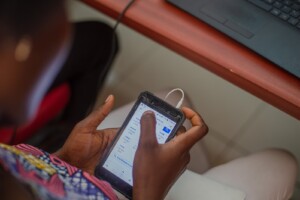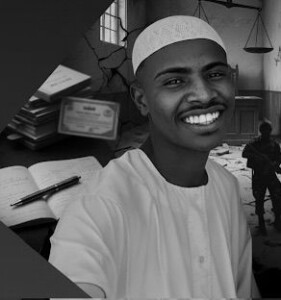Sudan security ‘war on press’ enters fourth day
A fierce campaign of newspaper confiscations by Sudan’s National Intelligence and Security Service (NISS) has continued for the fourth day in a row.
A fierce campaign of newspaper confiscations by Sudan’s National Intelligence and Security Service (NISS) has continued for the fourth day in a row.
On Friday the security apparatus confiscated the print runs of El Tayyar, El Jareeda, and Akhir Lahza from the presses without explanation.
The latest confiscations bring the number of newspapers seized in one week to 16 – on Thursday morning, El Tayyar, El Jareeda, El Watan and Akhir Lahza were also seized, while all four already witnessed confiscations of their print-runs earlier this week.
Akhir Lahza editor-in-chief Abdelazim Saleh told Radio Dabanga that on Friday morning the security apparatus confiscated the newspaper for the fourth day in a row. He lamented “the great impact of the repeated confiscations on the economy of the newspapers that cause them heavy material losses”.
Saleh demanded the security apparatus to resort to the law and stop confiscating the newspapers.
‘Major setback for press freedom’
On Friday the editorial board of the newspaper decided to block publication on Saturday in protest against the newspaper's successive confiscations.
Journalists strongly criticised the confiscations and expressed astonishment at the confiscations carried out by the security services, noting that this was the first time for the newspapers to be confiscated collectively and continuously without knowing the reason.
The Sudanese Journalists Network described the confiscations as “a massacre and a major setback in press freedom”.
The network said in a statement that it has been the most severe confiscation witnessed by the Sudanese press for more than a year.
The network said that some confiscated newspapers have tried to get a statement from the NISS about the reasons for the confiscations without getting conclusive information “which means that the campaign is targeting the press merely as press”.
On Friday the head of the national dialogue support trend, Dr Ammar El Sajad, criticised on his Facebook page confiscating the newspapers, saying “no implementation of the outcomes of the national dialogue, no freedoms under the confiscation of newspapers and amending the constitution to re-nominate Al Bashir”.
Press Act amendments
Lawyer Nabil Adib described the draft of the Voluntary Work Act and the amendments to the Press Act as repressive and unconstitutional.
He stressed that they would increase the external isolation of Sudan.
He told Radio Dabanga that the aim of the two Acts is to silence the press and the explicitly threaten freedom of organisation.
He explained that the new acts violate the recommendations of the UN Human Rights Council and contradict what has been done to lift the US sanctions on Sudan.
He said the new acts, if approved, would make the elections of 2020 formal and increase Sudan's external isolation.
In previous weeks, newsrooms and journalists in Sudan spoke out against draft amendments to the 2009 Press Act which may further restrict press freedom. So far, draft amendments have remained confidential. But according to a publication of the draft by El Tayyar, amendments include limitations on the electronic press' freedom and these are similar to the restrictions already imposed on the traditional press. In addition the Press Council would receive more power.
Self-censorship
Dr Salaheldin El Doma, a professor of political science at the Sudanese universities has halted political analysis in the media, conferences and symposiums, because of the security prosecutions that exceeded his person to reach the postgraduate students he supervises their theses.
He said he had informed the security services through the Director of Omdurman Islamic University of his decision to halt political analysis in the media.











 and then
and then